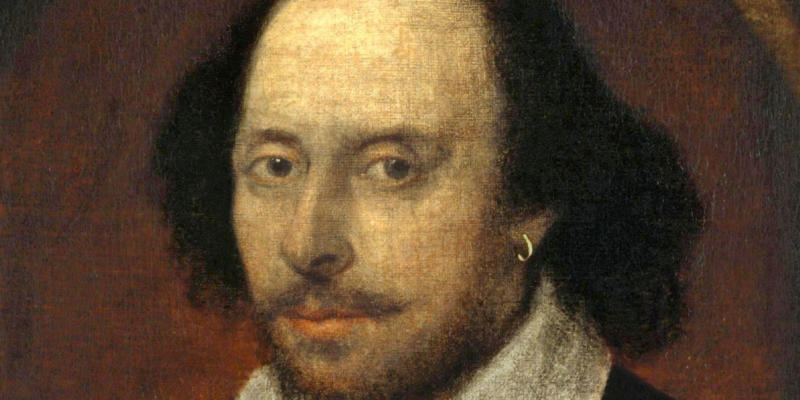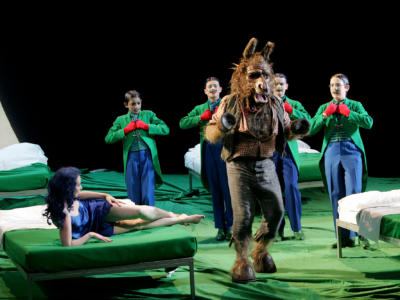A Midsummer Night's Dream: Libretto Vs. Script
In 1959 Benjamin Britten found himself with less than a year to compose a new opera. His tight time frame led him to use Shakespeare’s A Midsummer Night’s Dream as a starting point. Unlike many composers who simply base their opera on a story, play or idea, Britten decided that his libretto would stay true to the play’s script for the most part. That is, apart from one line that was added – “the sharp Athenian law (compelling thee to marry with Demetrius) cannot pursue us.”
Even though the script and the libretto are so similar, there is one important reason why they cannot be the exact same. It takes much longer to sing a word than to say it. For that reason, the libretto for A Midsummer Night’s Dream is significantly shorter than Shakespeare’s script. Britten even goes as far as cutting out Shakespeare’s Act 1 in its entirety. Instead, his opera begins with the fairies in the woods.


Britten's libretto
Act I
PUCK (calling):
How now spirits?
Shakespeare's script
Act II Scene I
PUCK:
How now, spirit! wither wander you?
As you can see, Puck’s opening line from the opera is simply a shortened version of that from the script. You’ll also notice that in some scenes the order of the lines has changed.
Britten's libretto
Act I
QUINCE:
Is all our company here?
ALL:
Ay, Ay.
BOTTOM:
You were best to call them generally,
man by man, according to the script.
FLUTE:
First, good Peter Quince,
say what the play treats on.
QUINCE:
Marry, our play is,
the most lamentable comedy,
and most cruel death
of Pyramus and Thisby.
ALL:
Of Pyramus and Thisby.
Shakespeare's script
Act 3 scene I
BOTTOM:
Are we all met?
QUINCE:
Pat, pat; and here’s a marvellous convenient place
for our rehearsal. This green plot shall be our
stage, this hawthorn-brake our tiring-house; and we
will do it in action as we will do it before the duke.
BOTTOM:
Peter Quince,–
QUINCE:
What sayest thou, bully Bottom?
BOTTOM:
There are things in this comedy of Pyramus and
Thisby that will never please. First, Pyramus must
draw a sword to kill himself; which the ladies
cannot abide. How answer you that?
Of course, Britten left some of the most famous lines from the play untouched.
Britten's libretto
Act I
LYSANDER:
The course of true love never did run smooth
Shakespeare's script
Act I Scene I
LYSANDER:
The course of true love never did run smooth
Britten's libretto
Act II
PUCK:
Lord, what fools these mortals be!
Shakespeare's script
Act II Scene II
PUCK:
Lord, what fools these mortals be!
Britten's libretto
Act III
TYTANIA:
Methought I was enamour’d of an ass.
Shakespeare's script
Act IV Scene I
TITANIA:
Methought I was enamour’d of an ass.
Fans of Shakespeare can rest assured, Britten stayed more or less true to the script and story line throughout his opera. You can find out which characters Britten chose to include in his opera, and which he left behind, in our A Midsummer Night’s Dream character guide.


